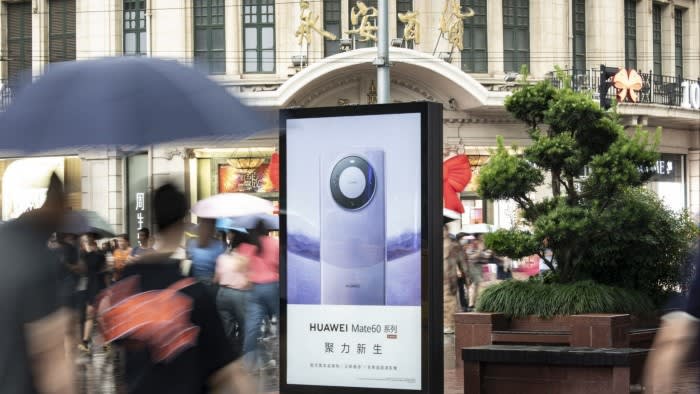From the author of Chip War:
What is the significance of Huawei’s new smartphone chip? The controversial Chinese telecoms company has attracted headlines because its new Mate 60 Pro phone has a sophisticated homegrown chip. SMIC, the Chinese chipmaker that Huawei collaborated with, has never previously made such an advanced semiconductor.
The chip industry is divided on what this means. On the one hand, SMIC has succeeded only in replicating a manufacturing process — called 7 nanometre — that Taiwan’s TSMC, the world’s leading chipmaker, was already producing at high volume in 2018. SMIC generally lags half a decade behind TSMC in rolling out new manufacturing processes, so by that metric, the Chinese company’s 7nm process has arrived right on schedule.
…
The government is also helping with new restrictions targeting the Mate 60 Pro’s primary competitor, the iPhone. Huawei’s phone launched alongside reports that Chinese government institutions and state-owned companies were discouraging employees from buying Apple products.
All this threatens the foreign companies that have advocated stabilising trade ties between China and the west. As recently as July, US semiconductor chief executives made pilgrimages to Washington to argue against new restrictions on China. Now their market share is at stake. If the Chinese market looks lost, American companies have no reason to lobby for access to it.
And as their chips are replaced by local versions, they may question whether the west’s decision to keep supplying China with chipmaking tools and chemicals is really in their interest.



I hope China sent a spy with a photographic memory to tour a chip foundry like in the early 1800’s when America sent Francis Cabot Lowell to Great Britain to memorize the design of the power loom. A British ship even detained him and searched his luggage for loom plans but the plans were stored safely in his mighty noggin. https://www.history.com/news/industrial-revolution-spies-europe
That would be an interesting exercise in espionage but I don’t think this would be feasible for modern chip making.
https://spectrum.ieee.org/high-na-euv
This has some interesting tidbits about what the next gen will be. And why even some detailed knowledge of the system is not the same as building it. Even if you got Zeiss’s drawings of the anamorphic lens, could they just replicate it? Probably not immediately.